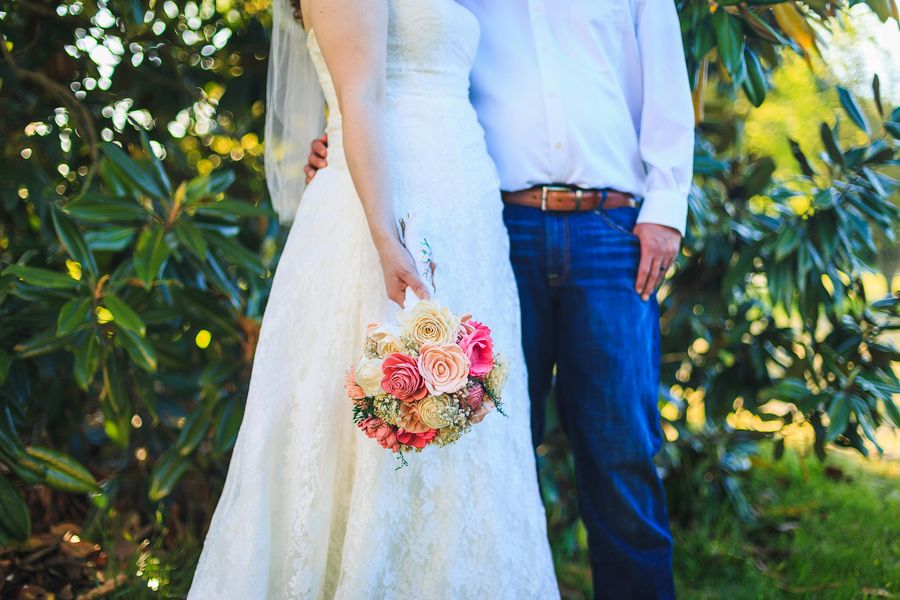Are you planning the most important day of your life? Whether you’re already engaged or just dreaming about your perfect wedding, there are a lot of decisions to make.
One of the biggest decisions is choosing the season for your wedding. In this article, we’ll take a closer look at the advantages and challenges of a summer wedding, so you can decide if it’s the right choice for you.
Advantages of a Summer Wedding
1. Menu and Catering
One of the main advantages of a summer wedding is the abundance of fresh and delicious foods.
Summer is the season of fruits, local cheeses, and fresh meats that can be incorporated into your menu. From cool salads to refreshing cocktails, your guests will love the variety and creativity of the summer menu.
Summer is also a great time for outdoor grilling and barbecues, which can add a fun and casual vibe to your wedding.
2. Longer Days
Summer is characterized by longer days, giving you more flexibility and scheduling opportunities. You can schedule your photo sessions and receptions later in the day, thanks to the extended daylight hours.
This allows you to have more time to enjoy your wedding day and take advantage of the outdoor venues and beautiful natural light for your photos.
3. Evening Receptions
Warm summer weather makes it perfect for evening receptions, where you can enjoy the stars, late sunsets, and an unforgettable atmosphere. The evenings in summer often come with a light breeze and a refreshing ambiance that creates a beautiful reception experience.
Evening receptions also serve great photography opportunities with the sophisticated equipment that can take stunning images at night.
4. Floral Arrangements
The selection of flowers is significantly richer in the summer, providing you with endless possibilities to match your color schemes and personal preferences. As the season is characterized by more color and life in nature, you can take advantage of this by creating bright and vibrant arrangements for your wedding.
Tricky Aspects of a Summer Wedding
1. Hot Months
June, July, and August are the hottest months, and it’s essential to choose a date that suits your preferences and guests.
The sunshine and heat can be challenging if you’re planning an outdoor wedding and may cause discomfort and dehydration for you and your guests.
2. High Cost of Items
The peak wedding season in summer is widely known for being one of the busiest and most expensive for vendors and planners. Plan ahead by researching your vendors, and choose those who can suit your budget and preferences.
You can also opt for a few key elements to create your dream wedding while sticking to your budget.
3. Need for Air Conditioning
Hot summer weather can be challenging for indoor weddings, as the temperature can be uncomfortable for your guests. You may need to consider additional costs of air conditioning to ensure that your guests are comfortable and enjoy the wedding.
If you decide to have a tented or outdoor wedding, make sure to also consider shade and ventilation to keep your guests cool.
4. Accommodation for Out-of-Town Guests
Summer is the peak season for travel, making it challenging to secure affordable accommodation for out-of-town guests. Make sure to research the best options near your wedding venue and reserve blocks of rooms well in advance to ensure ease and convenience for your guests.
In conclusion, a summer wedding can create an unforgettable experience full of excellent food, beautiful scenery, and vibrant colors, making it the perfect season to create stunning memories. Consider the advantages and challenges outlined above to make an informed decision that suits your personal style and preferences.
With the right planning, your summer wedding can be the day you’ve always dreamed of. Fall is a magical and romantic season that is perfect for weddings.
The crisp air, beautiful foliage, and warm colors make it an ideal setting for your special day. However, like any season, it’s essential to consider both the advantages and challenges of a fall wedding.
In this article, we’ll explore both the benefits and tricky aspects of a fall wedding to help you make an informed decision.
Advantages of a Fall Wedding
1. Outdoor Wedding Options
The natural backdrop of fall is one of its greatest assets, so it offers an ideal setting for an outdoor wedding.
Rustic barns, orchards, and vineyards can all offer a stunning backdrop for your ceremony, and the colors of the season make them all the more beautiful. The cooler temperatures also offer perfect conditions for longer outdoor receptions as you can roast marshmallows, sit by campfires, and create an intimate atmosphere.
2. Color Scheme
The deeper and darker colors of fall make it a perfect palette to accentuate the elegance and romance of your wedding.
Think about using rich berries, warm golden hues, and cozy earth tones to create an intimate and inviting ambiance. This color scheme offers a memorable contrast to the vibrant greens of spring and summer, making it perfect for wedding pictures with a pop of color.
3. Rustic Decorations
Fall presents the perfect opportunity to incorporate charming and rustic details into your wedding decor and theme.
Using bourbon barrels, hay bales, pumpkins, and acorns can add a romantic, vintage twist to your decorations. Authentic elements such as wooden signs and vintage furniture can also be used to give your wedding a homemade and casual feel.
4. Cost Savings
Fall can be a less expensive option for weddings.
As it is off-peak season, it is more likely for venues, vendors and destinations to offer discounts and deals, saving you money. An added bonus is that fall weddings can be an excellent opportunity for a destination wedding, especially if you’re looking to go to an international location, where prices are more affordable in the fall months.
Tricky Aspects of a Fall Wedding
1. Challenging Attendance
Fall can be a challenging time for people to attend your wedding, especially if they have to travel long distances.
This can come with additional expenses and could challenge certain guests to make it. However, you might be able to cut costs or provide affordable housing for guests, which can help them save on travel expenses and make it easier for them to attend your wedding.
2. Impact on Skin
The transition from hot to cold weather in fall can be harsh on the skin, potentially leading to dryness and chapping.
This concern is particularly significant if you have sensitive skin. To prevent this, ensure that you keep your skin well moisturized with adequate hydration and choose your makeup and skincare products carefully.
3. Financial Challenges
Fall tends to be a challenging time financially for many people, with back-to-school expenses and holidays coming up.
It’s also worth noting that a wedding in the fall could coincide with gift-giving events, such as Christmas. To avoid any unwelcome pressures, communicate with your guests, and let them know that their presence is what matters most.
Choosing the Best Season for Your Wedding
Ultimately, the season you choose for your wedding depends on your personal preferences, budget, and style. Weigh the pros and cons of each season before making a final decision.
Be sure to consider the benefits and drawbacks of each season to make an informed choice. In the end, the most important thing is to celebrate your love and create memories that will last a lifetime.
In conclusion, choosing the perfect wedding season is a significant decision in creating a memorable and magical wedding day. As highlighted in this article, different seasons have unique advantages and challenges to consider.
When deciding on the season for your wedding, it’s important to weigh up the pros and cons and consider what aligns with your style and preferences. Remember to prioritize comfort and enjoyment for yourself and your guests, as this will ensure that your day is unforgettable.
By making an informed decision, you can create an unforgettable wedding filled with love, joy, and meaningful memories that will last a lifetime.



